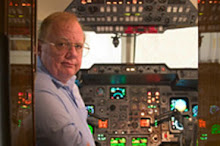Are VORs on the decline? Will they die and vanish? Long story short: yes, VORs will die.
I’ve been in aviation for more than ten years now and I’ve heard lots of theories about the end of the VOR system. Because VORs have to be installed at specific location, they are expensive to build and maintain. And because of their limited coverage, many of them are needed to cover wide areas.
GPS is much better. It offers a worldwide coverage and it is much more accurate than VORs. GPS is also easier to use. No frequency to tune in, no need to select a radial or to identify a Morse code. GPS provides a direct position, where VORs require a second station or a DME to establish a position.
Despite all of these drawbacks, VORs are still around, and I bet that they will still be there in ten years from now. Aviation evolves very slowly. Installations like VORs have a life-cycle of several decades. Modifying procedures and publications also costs a lot of work, effort and money. Switching the whole system from VOR to GPS can not be done in one single “big-bang” step.
VORs are also used as backup in case of GPS failures. Not total failure of the GPS system, but failures of the receiver on board aircraft. In a GPS only system, the only navigation system left is radar vectoring. Before predicting the death of the VORs, the same oracles predicted the death of the NDBs. This finally happened – or is still in progress – but way later than they predicted.
GPS continues its extension. In the US there are now more GPS than ILS approaches, and almost all en-route navigation is based on GPS. I don’t know what could replace the VORs as a backup system at this time, but I’m sure that as soon as there will be one, VORs will die.
If you're new here, you may want to subscribe to my RSS feed. Have a look at my homebase for a good overview. Thanks for visiting!
skip to main |
skip to sidebar
"All Things Aviation" is a blog about general aviation in the United States - about what is new, what is happening, and what is on its way.
Blog Archive
-
▼
2010
(83)
-
▼
July
(44)
- What every pilot needs to have in their flight bag
- Congress ready to pass aviation safety measures | ...
- "Out of the box" for another eight months
- Los Angeles Lawyers plane crash - to ensure justic...
- What you should expect on your first training flight
- Airspeed Video Episode - Spins with Barry
- Who was David Warren, inventor of the aircraft Coc...
- Top Ten Reasons to Work For A Regional Airline
- Attitude Does Not Equal Authority
- aviation How to secure your aircraft from theft ht...
- Airshow Sees Aviation Industry Pulling Out of Long...
- Aviation industry's drive for fuel economy spurs p...
- Why Aviation Companies Should Be Competing On Valu...
- More Evidence Pilots Can't Count to Three
- Dawson Something
- Will VORs die?
- Symposium puts aviation safety in the spotlight | ...
- Inventor Of The Aircraft "Black Box" David Warren ...
- Delta Reports Earnings And Airline Stocks Go Splat
- First iFlight from Farnborough ready to roll #FARN10
- Vectren Dayton Airshow 2010 - Media Day http://pin...
- Farnborough 2010: A Preview
- Air Zoo offers summer flight experiences | General...
- Aviation Biofuel Advancements To Be Showcased At I...
- SR-71 'BLACKBIRD' FORD MUSTANG PRODUCED IN FIRST E...
- Preparing A Career In Aviation
- Discover a vision breakthrough designed to protect...
- Hiller Aviation Museum
- Become an Airplane Geek for a Day
- Is Your Flight Department Up To The Standard? Part...
- PlaneBusiness Banter Now Posted!
- Knowledge Base » A Brief History Of Gps In Aviation
- bigfaqs.com » Is aviation a dieing Form of transpo...
- Blue Angels Announce 2011 Team Members
- The not so subtle intersection of Russian aircraft...
- Cross Country Flight – Deviations and Diversions
- Tips for mountain flying
- Jacobson's Ladder
- Through Eager Eyes - Chapter 4
- Are BizJets "Politically Incorrect?" http://tinyur...
- All pilots and those interested in general aviatio...
- Solar Impulse HB-SIA First Solar Night Flight | NY...
- FAA Stresses Upset Recovery Training : AINonline
- Aviation Industry : Back Into The 'Friendly Skies'...
-
▼
July
(44)
